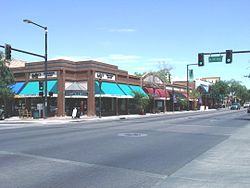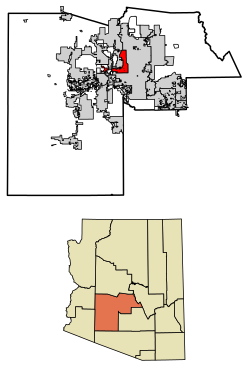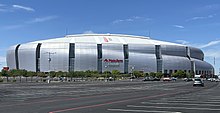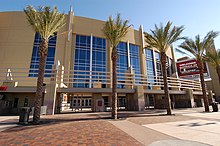

Selecting the right medical malpractice lawyer can make a significant difference in the outcome of your case. In Glendale, victims face unique challenges that require a lawyer with specific expertise and dedication. Here are the key factors to consider when choosing your legal representation.
First, look for a lawyer with substantial experience in medical malpractice cases. This area of law is highly specialized, requiring in-depth knowledge of medical terminology, procedures, and standards. A lawyer with a proven track record in this field is better equipped to handle complex claims and anticipate potential challenges.
Next, evaluate their reputation. Client testimonials, peer reviews, and case results can provide insight into their professionalism and effectiveness. Lawyers with a history of securing fair settlements or winning verdicts demonstrate their ability to advocate for their clients.
Accessibility and communication are also critical. Your lawyer should be responsive to your questions, keep you informed about the progress of your case, and provide clear explanations of legal concepts. Strong communication fosters trust and ensures you understand your options at every stage.
Finally, consider whether they have the resources necessary to pursue your claim. Medical malpractice cases often involve expert witnesses, extensive document review, and other costs. A well-resourced lawyer will have access to these tools, increasing the likelihood of a successful outcome.
By carefully considering these factors, you can find a Glendale medical malpractice lawyer who will fight tirelessly for your rights and the compensation you deserve.
Medical records play a central role in medical malpractice cases, serving as the foundation for proving negligence and establishing the extent of damages. For victims in Glendale, understanding how these records are used is crucial to building a strong claim.
Your medical records document the care you received, including diagnoses, treatment plans, medications, and any complications. They provide an objective timeline of events, making them invaluable in demonstrating where and how a healthcare provider may have deviated from accepted standards.
In addition to documenting errors, medical records help establish causation—the link between the provider’s actions and your injuries. For instance, if a misdiagnosis led to delayed treatment, your records could show how the delay worsened your condition.
Securing your medical records is one of the first steps in a malpractice case. Federal and state laws protect your right to access these records, but navigating the process can be complex. A Glendale medical malpractice lawyer can help you obtain and review your records to identify critical evidence.
Once obtained, these records are often analyzed by expert witnesses who can provide testimony on whether the provider acted negligently. This expert analysis is crucial for convincing insurance companies, judges, or juries of the validity of your claim.
If you suspect medical malpractice, contact an experienced lawyer who can guide you through the process of collecting and using your medical records to strengthen your case.

A Glendale medical malpractice lawyer can provide a range of services to individuals who have been victims of medical negligence.. These legal professionals are well-versed in the complex laws and regulations surrounding medical malpractice cases, and they can offer invaluable guidance and support throughout the entire legal process. One of the primary services that a Glendale medical malpractice lawyer can provide is conducting a thorough investigation into the circumstances surrounding the alleged malpractice.
Posted by on 2024-11-21

When searching for a Glendale medical malpractice attorney, it's important to consider certain qualifications to ensure that you find the best legal representation for your case.. Medical malpractice cases can be complex and challenging, so having an experienced and knowledgeable attorney by your side is crucial. One of the first things to look for in a medical malpractice attorney is their experience in handling similar cases.
Posted by on 2024-11-21

When considering hiring a Glendale medical malpractice lawyer, one of the first questions that may come to mind is, "What compensation can I expect?" It's a valid concern, especially when dealing with the aftermath of a medical error or negligence. In general, the compensation you can expect from hiring a medical malpractice lawyer in Glendale will depend on the specifics of your case.. Every case is unique and will be handled differently based on factors such as the severity of the injury or harm caused, the extent of damages incurred, and the level of negligence demonstrated by the healthcare provider. A skilled medical malpractice lawyer will work tirelessly to secure the maximum amount of compensation possible for their client.
Posted by on 2024-11-21

A Glendale medical malpractice lawyer is a legal professional who specializes in handling cases where patients have suffered harm due to the negligence of healthcare providers.. These lawyers are experienced in navigating the complex world of medical malpractice law and are dedicated to helping their clients seek justice and compensation for the injuries they have sustained. Medical malpractice occurs when a healthcare provider fails to provide a standard level of care, resulting in harm to the patient.
Posted by on 2024-11-21
The statute of limitations is a critical factor in medical malpractice cases, determining how long victims have to file a lawsuit. In Glendale, understanding these legal deadlines is essential for preserving your right to seek compensation.
In California, the general statute of limitations for medical malpractice cases is three years from the date of the injury or one year from the date the injury was discovered, whichever comes first. This discovery rule accounts for situations where the harm caused by malpractice isn’t immediately apparent, such as a delayed diagnosis.
There are exceptions to these time limits. For example, in cases involving minors, the statute of limitations may be extended. Typically, minors have until their eighth birthday to file a claim for injuries that occurred before age six. For injuries sustained after age six, the standard deadlines apply.
Failing to file a claim within the statute of limitations can result in your case being dismissed, regardless of its merit. This underscores the importance of consulting with a Glendale medical malpractice lawyer as soon as possible after you suspect negligence.
An experienced lawyer can evaluate your case, determine the applicable deadlines, and ensure that your claim is filed on time. Acting promptly not only protects your legal rights but also helps preserve evidence and build a stronger case.


When pursuing a medical malpractice claim in Glendale, thorough documentation can significantly strengthen your case. From medical records to personal notes, organized evidence provides the foundation for proving negligence and securing compensation.
Your medical records are the most critical piece of evidence. They detail the care you received, including test results, treatment plans, and communications with healthcare providers. These records are essential for identifying errors and demonstrating how the provider’s actions caused your injuries.
In addition to medical records, keep a personal journal documenting your experiences. Record details about your symptoms, treatments, and interactions with healthcare professionals. Include information about how your injury has impacted your daily life, such as physical pain, emotional distress, and limitations on activities.
Financial records are equally important. Save all bills, receipts, and pay stubs related to your medical care and lost income. These documents help quantify the economic damages you’ve incurred due to malpractice.
If you suspect malpractice, take action to preserve evidence. Request copies of your medical records immediately, as delays can result in missing or altered information. A Glendale medical malpractice lawyer can assist you in gathering and organizing this evidence to build a compelling case.
By maintaining comprehensive documentation, you empower your legal team to advocate effectively on your behalf and increase your chances of a successful outcome.
The consequences of medical malpractice extend far beyond the immediate injuries, often affecting victims for years or even a lifetime. In Glendale, understanding these long-term impacts is crucial for pursuing fair compensation.
Physically, victims may face chronic pain, permanent disabilities, or the need for ongoing medical care. For example, a surgical error might lead to nerve damage, requiring repeated procedures or physical therapy. These conditions can significantly reduce a person’s quality of life.
Emotionally, the trauma of medical malpractice can leave lasting scars. Many victims experience anxiety, depression, or post-traumatic stress disorder. The loss of trust in healthcare providers can also make it difficult to seek care in the future, potentially worsening health outcomes.
Financially, the burden can be overwhelming. Victims may face mounting medical bills, lost income, and diminished earning capacity. For families, the costs of caring for a loved one with long-term injuries can strain relationships and resources.
A Glendale medical malpractice lawyer can help you account for these long-term effects when pursuing compensation. They will work to ensure that your claim reflects not just your immediate losses but also the ongoing challenges you face as a result of the provider’s negligence.


Medical malpractice is often misunderstood, with myths and misconceptions preventing victims in Glendale from seeking the justice they deserve. Debunking these myths can empower you to take action if you’ve been harmed by negligence.
One common myth is that all negative medical outcomes are malpractice. In reality, not every complication or poor result constitutes negligence. To qualify as malpractice, the provider’s actions must deviate from accepted standards of care and directly cause harm.
Another misconception is that malpractice cases are frivolous or primarily driven by financial gain. The truth is, most victims pursue these claims to hold negligent providers accountable and secure the resources needed for recovery.
Many people also believe that medical malpractice lawsuits are too expensive to pursue. While these cases can be costly, most lawyers work on a contingency fee basis, meaning they only get paid if you win. This arrangement allows victims to seek justice without upfront costs.
Finally, some assume that filing a claim will ruin a doctor’s career. In reality, malpractice cases are about accountability, not punishment. Most claims aim to ensure that victims receive fair compensation and that providers learn from their mistakes.
If you’ve been harmed by medical negligence, don’t let myths deter you from seeking justice. A Glendale medical malpractice lawyer can provide clarity, guidance, and support as you navigate the legal process.
Glendale | |
|---|---|
 Downtown
Glendale | |
 Location in Maricopa County, Arizona | |
| Coordinates: 33°32′19″N 112°11′11″W / 33.53861°N 112.18639°W | |
| Country | United States |
| State | Arizona |
| County | Maricopa |
| Founded by | William John Murphy |
| Government | |
| • Mayor | Jerry Weiers (Non-Partisan) |
| • Vice mayor | Jamie Aldama |
| Area | |
• Total | 65.09 sq mi (168.59 km2) |
| • Land | 64.68 sq mi (167.53 km2) |
| • Water | 0.41 sq mi (1.06 km2) |
| Elevation | 1,152 ft (351 m) |
| Population | |
• Total | 248,325 |
| • Rank | US: 89th |
| • Density | 3,839.17/sq mi (1,482.30/km2) |
| Demonym | Glendalian |
| Time zone | UTC−7 (MST (no DST)) |
| ZIP code | 85301-85318 |
| Area codes | 602, 480, 623 |
| FIPS code | 04-27820 |
| GNIS feature ID | 5060[2] |
| Website | www |
Glendale (/ˈɡlɛndeɪl/) is a city in Maricopa County, Arizona, United States. Located about nine miles northwest of the state capital Phoenix, Glendale is known for State Farm Stadium, which is the home of the Arizona Cardinals football team. The city also contains the Arrowhead Towne Center shopping mall. As of the 2020 census, Glendale had a population of 248,325.[3]
In the late 1800s the area that is now Glendale was all desert. William John Murphy, a native of New Hartford, New York, who resided in the town of Flagstaff in what was then the territory of Arizona, was in charge of building the 40-mile-long (64 km) Arizona Canal from Granite Reef to New River for the Arizona Canal Company. In 1885, he completed the canal, which would bring water to the desert land.[4] Murphy was deep in debt, since he had agreed to be paid in Arizona Canal Company stock and bonds and land instead of cash.[5]

In 1887, Murphy formed the Arizona Improvement Company. His objective was to sell the land and water rights south of the canal. Murphy raised capital from out of state sources in order to meet payroll and construction expenses.[5] Murphy decided to refer to this land as "Glendale". In order to develop and interest potential investors and settlers in this new town, Murphy decided to provide a better way of access from Phoenix to Glendale and ending in the town of Peoria by building an 18-mile-long (29 km) diagonal road which he named Grand Avenue.
In 1891, Burgess Hadsell worked with Murphy to bring 70 Brethren and River Brethren families to Glendale to form a temperance colony. Soon settlers, attracted by the town's ban on alcoholic beverages, continued to arrive. In 1895, Murphy platted the original town site and amended the plat to include a town park and some business lots. It was bounded by Lamar Road on the south, 55th Avenue on the east, Myrtle Avenue on the north, and 59th Avenue on the west.[6] The construction of a railroad from Prescott to Phoenix was made possible with an exchange of the right-of-way made by Murphy along Grand Avenue.[4] The railroad allowed Glendale settlers to transport goods to the north and easily receive building materials.
The construction and commercial applications of the Beet Sugar Factory in 1906 also contributed to the growth of Glendale. Though the operations of the factory only lasted until 1913, it played an important role in the increase of immigrant and migrant settlers in the city.[7] Several other businesses were founded around this time such as Glendale Ice Company, Pacific Creamery Company, Glendale Milling Company, and Southwest Flour and Feed.[8]
World War I ushered in a renewal for Glendale, with cotton prices rising throughout the period. Cotton continues to be a source of economic prosperity in Glendale with many farms still along the Loop 101, despite many farmers switching to more profitable crops.[9] A high demand for food, also kept farmers busy. Numerous farms and orchards were established and thrived through the early 1900s.[10]
World War II brought the birth of Thunderbird Field to train civilian pilots for the Army. In late 1940, a few Hollywood actors and businessmen, headed by Leland Hayward, approached the Army to establish a primary flight training school. This group chose the site of Thunderbird Field primarily because of its abundance of space, excellent weather, and good visibility.[11] While this field was being built in 1941, the Army was busy working on a larger base for $4.5 million, Luke Field (now Luke Air Force Base). This base was named for the first pilot to receive a Medal of Honor, Lt. Frank Luke Jr. Thunderbird Field would later become the Thunderbird American Graduate School for International Management.
The military and college presence, as well as the increase in population (nearly doubling between 1950 and 1960),[12] sparked a need for utilities, parks, schools and streets. Over the next 40 years, the city added a landfill, water treatment plant, sewage plants, libraries, parks, public safety facilities, an airport, a city hall and a civic center.
Arrowhead Towne Center opened in 1993, and the surrounding neighborhood, Arrowhead Ranch, made the area a hotspot for housing and shopping. The completion of Loop 101 throughout Glendale opened the city to the rest of the Valley.[8]
In recent decades, the city has begun major investment into tourism. The establishment of the Westgate Entertainment District, housing Desert Diamond Arena, and State Farm Stadium in the early 2000s made Glendale a destination for locals and visitors. Construction of the VAI Resort and Mattel Adventure Park, scheduled to open in 2025, will continue to grow Glendale’s tourism economy creating hundreds of new jobs and proving more than a thousand new hotel rooms for the city.[13][14]
In 2024, the city called on the Department of Defense to lobby for Arizona Governor Katie Hobbs to veto bipartisan legislation to increase housing supply in Arizona. Ryan Lee, the city’s intergovernmental-programs director, confirmed to The Atlantic that he was behind the move. State Representative Analise Ortiz, whose district includes parts of Glendale, criticized the city for going behind legislators' back to lobby against the legislation, "This is not the way we typically go about creating policy."[15]
According to the United States Census Bureau, the city has a total area of 65.1 square miles (169 km2), of which 0.4 square miles (1.0 km2), or 0.63%, is water.[1] The New River and Agua Fria River flow southward through the western extremities of the city.
Glendale has a hot desert climate (Köppen: BWh) typical of Southern Arizona, with very hot and dry summers and mild winters.[16]
| Climate data for Phoenix Int'l, Arizona (1991–2020 normals,[a] extremes 1895–present)[b] | |||||||||||||
|---|---|---|---|---|---|---|---|---|---|---|---|---|---|
| Month | Jan | Feb | Mar | Apr | May | Jun | Jul | Aug | Sep | Oct | Nov | Dec | Year |
| Record high °F (°C) | 88 (31) |
92 (33) |
100 (38) |
105 (41) |
114 (46) |
122 (50) |
121 (49) |
118 (48) |
118 (48) |
113 (45) |
99 (37) |
87 (31) |
122 (50) |
| Mean maximum °F (°C) | 78.2 (25.7) |
82.1 (27.8) |
90.4 (32.4) |
99.0 (37.2) |
105.7 (40.9) |
112.7 (44.8) |
114.6 (45.9) |
113.2 (45.1) |
108.9 (42.7) |
100.7 (38.2) |
88.9 (31.6) |
77.7 (25.4) |
115.7 (46.5) |
| Mean daily maximum °F (°C) | 67.6 (19.8) |
70.8 (21.6) |
78.1 (25.6) |
85.5 (29.7) |
94.5 (34.7) |
104.2 (40.1) |
106.5 (41.4) |
105.1 (40.6) |
100.4 (38.0) |
89.2 (31.8) |
76.5 (24.7) |
66.2 (19.0) |
87.1 (30.6) |
| Daily mean °F (°C) | 56.8 (13.8) |
59.9 (15.5) |
66.3 (19.1) |
73.2 (22.9) |
82.0 (27.8) |
91.4 (33.0) |
95.5 (35.3) |
94.4 (34.7) |
89.2 (31.8) |
77.4 (25.2) |
65.1 (18.4) |
55.8 (13.2) |
75.6 (24.2) |
| Mean daily minimum °F (°C) | 46.0 (7.8) |
49.0 (9.4) |
54.5 (12.5) |
60.8 (16.0) |
69.5 (20.8) |
78.6 (25.9) |
84.5 (29.2) |
83.6 (28.7) |
78.1 (25.6) |
65.6 (18.7) |
53.7 (12.1) |
45.3 (7.4) |
64.1 (17.8) |
| Mean minimum °F (°C) | 36.0 (2.2) |
40.0 (4.4) |
44.4 (6.9) |
50.1 (10.1) |
58.4 (14.7) |
69.4 (20.8) |
74.4 (23.6) |
74.2 (23.4) |
68.3 (20.2) |
53.8 (12.1) |
42.0 (5.6) |
35.4 (1.9) |
33.8 (1.0) |
| Record low °F (°C) | 16 (−9) |
24 (−4) |
25 (−4) |
35 (2) |
39 (4) |
49 (9) |
63 (17) |
58 (14) |
47 (8) |
34 (1) |
27 (−3) |
22 (−6) |
16 (−9) |
| Average precipitation inches (mm) | 0.87 (22) |
0.87 (22) |
0.83 (21) |
0.22 (5.6) |
0.13 (3.3) |
0.02 (0.51) |
0.91 (23) |
0.93 (24) |
0.57 (14) |
0.56 (14) |
0.57 (14) |
0.74 (19) |
7.22 (183) |
| Average precipitation days (≥ 0.01 in) | 3.8 | 4.1 | 3.1 | 1.5 | 1.0 | 0.5 | 3.9 | 4.6 | 2.5 | 2.2 | 2.2 | 4.0 | 33.4 |
| Average relative humidity (%) | 50.9 | 44.4 | 39.3 | 27.8 | 21.9 | 19.4 | 31.6 | 36.2 | 35.6 | 36.9 | 43.8 | 51.8 | 36.6 |
| Average dew point °F (°C) | 32.4 (0.2) |
32.2 (0.1) |
32.9 (0.5) |
31.6 (−0.2) |
34.3 (1.3) |
39.0 (3.9) |
56.1 (13.4) |
58.3 (14.6) |
52.3 (11.3) |
43.0 (6.1) |
35.8 (2.1) |
33.1 (0.6) |
40.1 (4.5) |
| Mean monthly sunshine hours | 256.0 | 257.2 | 318.4 | 353.6 | 401.0 | 407.8 | 378.5 | 360.8 | 328.6 | 308.9 | 256.0 | 244.8 | 3,871.6 |
| Percent possible sunshine | 81 | 84 | 86 | 90 | 93 | 95 | 86 | 87 | 89 | 88 | 82 | 79 | 87 |
| Average ultraviolet index | 3.1 | 4.4 | 6.6 | 8.5 | 9.7 | 10.9 | 11.0 | 10.1 | 8.3 | 5.6 | 3.7 | 2.7 | 7.0 |
| Source 1: NOAA (dew points, relative humidity, and sun 1961–1990)[17][18][19], Weather.com[20] | |||||||||||||
| Source 2: UV Index Today (1995 to 2022)[21] | |||||||||||||
| Census | Pop. | Note | %± |
|---|---|---|---|
| 1910 | 1,000 | — | |
| 1920 | 2,737 | 173.7% | |
| 1930 | 3,665 | 33.9% | |
| 1940 | 4,855 | 32.5% | |
| 1950 | 8,179 | 68.5% | |
| 1960 | 15,893 | 94.3% | |
| 1970 | 36,228 | 127.9% | |
| 1980 | 97,172 | 168.2% | |
| 1990 | 147,864 | 52.2% | |
| 2000 | 218,812 | 48.0% | |
| 2010 | 226,721 | 3.6% | |
| 2020 | 248,325 | 9.5% | |
| U.S. Decennial Census[22] | |||
| Race / Ethnicity (NH = Non-Hispanic) | Pop 2000[23] | Pop 2010[24] | Pop 2020[25] | % 2000 | % 2010 | % 2020 |
|---|---|---|---|---|---|---|
| White alone (NH) | 141,462 | 116,866 | 107,695 | 64.65% | 51.55% | 43.37% |
| Black or African American alone (NH) | 9,818 | 12,766 | 17,872 | 4.49% | 5.63% | 7.20% |
| Native American or Alaska Native alone (NH) | 2,460 | 2,707 | 3,030 | 1.12% | 1.19% | 1.22% |
| Asian alone (NH) | 5,860 | 8,618 | 11,272 | 2.68% | 3.80% | 4.54% |
| Pacific Islander alone (NH) | 230 | 355 | 492 | 0.11% | 0.16% | 0.20% |
| Other race alone (NH) | 289 | 329 | 1,171 | 0.13% | 0.15% | 0.47% |
| Mixed race or Multiracial (NH) | 4,350 | 4,579 | 9,176 | 1.99% | 2.02% | 3.70% |
| Hispanic or Latino (any race) | 54,343 | 80,501 | 97,617 | 24.84% | 35.51% | 39.31% |
| Total | 218,812 | 226,721 | 248,325 | 100.00% | 100.00% | 100.00% |
As of the census of 2010, there were 226,710 people, 79,114 households, and 54,721 families residing in the city. The population density was 3,929.5 inhabitants per square mile (1,517.2/km2). There were 79,667 housing units at an average density of 1,430.7 per square mile (552.4/km2). The racial makeup of the city was 75.54% White, 6% Black or African American, 1.7% Native American, 3.9% Asian, 0.2% Pacific Islander, 16.95% from other races, and 4.0% from two or more races. 35.5% of the population was Hispanic or Latino of any race.
There were 79,114 households, out of which 39.9% had children under the age of 18 living with them, 53.5% were married couples living together, 12.8% had a female householder with no husband present, and 28.2% were non-families. 21.3% of all households were made up of individuals, and 5.8% had someone living alone who was 65 years of age or older. The average household size was 2.85 and the average family size was 3.33.
In the city, 30.1% of the population was under the age of 18, 10.8% was from 18 to 24, 31.9% from 25 to 44, 19.9% from 45 to 64, and 7.4% was 65 years of age or older. The median age was 31 years. For every 100 females, there were 99.6 males. For every 100 females age 18 and over, there were 97.1 males.
The median income for a household in the city was $45,015, and the median income for a family was $51,162. Males had a median income of $35,901 versus $27,736 for females. The per capita income for the city was $19,124. About 8.8% of families and 11.9% of the population were below the poverty line, including 15.3% of those under age 18 and 9.5% of those age 65 or over.
| # | Employer | # of Employees |
|---|---|---|
| 1 | Luke Air Force Base | 5,100 |
| 2 | Banner Health | 3,000 |
| 3 | Arrowhead Towne Center | 2,650 |
| 4 | Walmart | 2,175 |
| 5 | Glendale Union High School District | 1,974 |
| 6 | Glendale Community College | 1,948 |
| 7 | The City of Glendale | 1,693 |
| 8 | Deer Valley Unified School District | 1,594 |
| 9 | Glendale Elementary School District | 1,400 |
| 10 | Tanger Outlets | 1,200 |
Source: AZCentral.com[26]


Glendale is noted for its retail sales of antiques.[30]
The Arrowhead Towne Center mall is located here.
Glendale was temporarily renamed as Swift City on March 17 and 18, 2023,[31] as per the mayor and the city council's proclamation,[32] to celebrate the opening concerts of the Eras Tour, the sixth concert tour by American singer-songwriter Taylor Swift, at State Farm Stadium.[33] The Westgate Entertainment District, a mixed-use complex in the city, additionally put up welcoming messages, with the local restaurants offering Swift-themed menu items.[34][35] State Farm also hosted the Super Bowl LVII halftime show, headlined by Barbadian singer Rihanna, shortly before the tour.[36]


Glendale is the site of two major sports venues: State Farm Stadium and Desert Diamond Arena. Both venues are part of the Glendale Sports and Entertainment District development plan, meant to spur growth in the sparsely inhabited Yucca district. Both venues are owned by the City of Glendale.
State Farm Stadium has been the home field of the Arizona Cardinals in the National Football League since 2006, and the annual Fiesta Bowl college football game since 2007. Both the Cardinals and bowl game moved from Sun Devil Stadium on the Arizona State University campus in Tempe. Since opening, the facility has hosted three Super Bowls, three college football national championship games, the NCAA Men's Basketball Final Four, WrestleMania XXVI and International Champions Cup soccer to Glendale. Designed by architect Peter Eisenman, the stadium was featured on The History Channel TV series, Modern Marvels because of its roll-out natural grass field.
Desert Diamond Arena (formerly Glendale Arena, then Jobing.com Arena and Gila River Arena) and Westgate City Center is adjacent to State Farm Stadium, and was the home of the Arizona Coyotes of the National Hockey League (NHL). It was also the home of the now defunct Arizona Sting of the National Lacrosse League (NLL). The inaugural Street League Skateboarding event was held in the summer of 2010 in Glendale at the Gila River Arena. This street skateboarding competition returns to Glendale annually. Currently, the arena hosts the Arizona Rattlers of the Indoor Football League.
In 2009, the Los Angeles Dodgers and the Chicago White Sox of Major League Baseball began to share the new Camelback Ranch-Glendale spring training complex and stadium in Glendale owned and operated by the City of Glendale.
There are a number of higher education campuses in Glendale. Glendale Community College and Glendale Community College North, just across the border in northwestern Phoenix, are members of the Maricopa County Community College District. Arizona State University’s Thunderbird School of Global Management was founded in Glendale at Thunderbird Field after World War II and recently relocated its campus to the downtown location of ASU after joining the university as an independent unit dedicated to international business education. West campus is just across the border from Glendale in west Phoenix. Midwestern University is a graduate college of medicine located in Glendale.
Many school districts serve the city of Glendale.
The following school districts serve the city:
Grace Lutheran School is a Pre-K-8 Christian school of the Wisconsin Evangelical Lutheran Synod (WELS) in Glendale.[38]
New Gains Academy is a grade 5-12 Microschool in Glendale. with academics, business entrepreneurship, piano, voice, dance and art programs.
Our Lady of Perpetual Help Catholic School is a Pre-K-8 Catholic school of the Roman Catholic Diocese of Phoenix in Glendale.[39]
Arrowhead Christian Academy is a K-12 Christian school associated with Northwest Valley Baptist Church in Glendale.[40]
The city of Glendale has a roughly average percentage of households without a car. In 2015, 8.4 percent of Glendale households lacked a car, and increased slightly to 9 percent in 2016. The national average was 8.7 percent in 2016. Glendale averaged 1.72 cars per household in 2016, compared to a national average of 1.8.[41]
Glendale Municipal Airport serves the city but it does not offer commercial air services. The closest commercial airport is Phoenix Sky Harbor International Airport, located about 30 minutes away by car.
Glendale has two sister cities:
If you believe you have suffered harm due to negligence or misconduct by a healthcare provider, it is advisable to consult with a Glendale Medical Malpractice Lawyer to determine the validity of your claim.